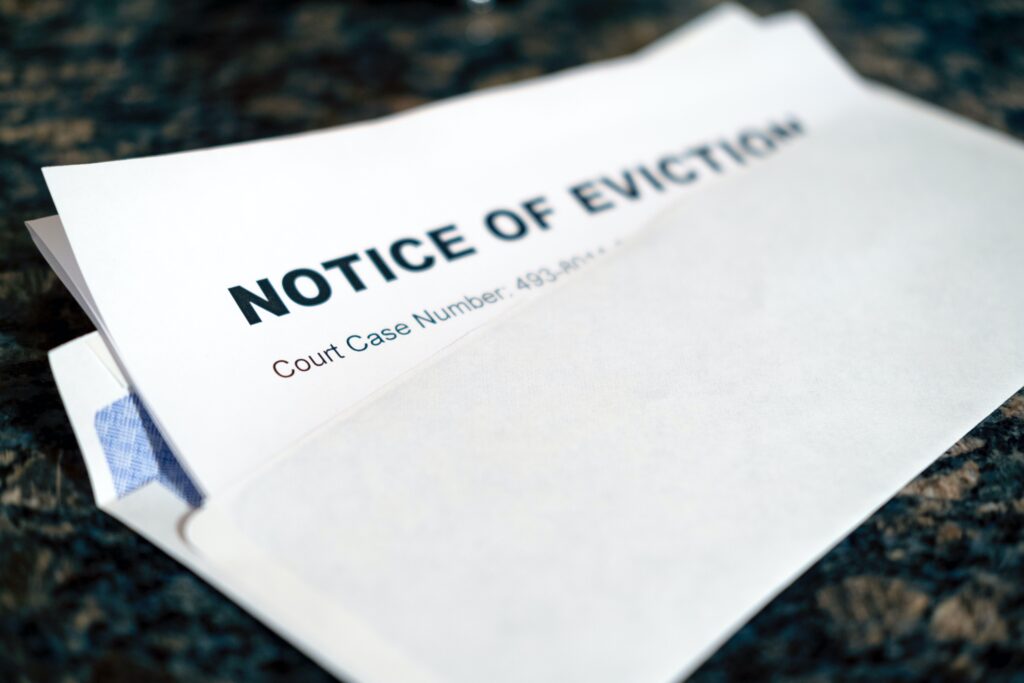If you’re a homeowner looking to tap into your property’s equity, you might have stumbled across the term “cash out refinance.” While this financial product is more commonly associated with the US market, similar options are becoming increasingly available in the UK.
Here, we look at cash out refinancing, how it functions on British soil and when it might (or might not) be a smart move.
What is cash-out refinancing?
Cash out refinancing involves replacing your existing mortgage with a new, larger loan. The difference between the new mortgage amount and your outstanding balance is then paid out to you in cold, hard cash. It’s essentially a way to borrow against the equity you’ve built up in your home over time.
For example, let’s say your house is worth £300,000, and you still owe £150,000 on your mortgage. You’ve got £150,000 in equity. With a cash out refinance, you might take out a new mortgage for £200,000, pay off the old £150,000 loan and pocket the extra £50,000.
Sounds tempting, doesn’t it? But before you start mentally spending that windfall, let’s break down how it actually works in the UK market.
The UK twist on cash-out refinancing
While the term “cash out refinance” isn’t widely used in the UK, similar products exist under different names. You might encounter:
- Further advance: This involves borrowing more money from your existing lender, essentially increasing your current mortgage.
- Remortgage with equity release: Here, you switch to a new lender and borrow additional funds against your property’s value.
- Second charge mortgage: Also known as a “second mortgage,” this involves taking out a separate loan secured against your property, in addition to your primary mortgage.
Each of these options functions slightly differently, but they all allow you to access the equity in your home while potentially adjusting your mortgage terms.
Benefits of cash-out refinancing
While we’ve covered the risks, cash-out refinancing isn’t all doom and gloom. There are some genuine benefits that make it an attractive option for many homeowners:
Access to cash for major expenses
Remember that extension you’ve been dreaming about? Or perhaps you’ve got a child heading off to university? Cash-out refinancing can provide a lump sum for these big-ticket items. Whether it’s home renovations, education expenses, or even starting a business, this option gives you access to a significant amount of cash that might otherwise be tied up in your property.
Lower interest rates compared to personal loans
If you’re considering taking out a personal loan or—heaven forbid—using credit cards for a major expense, hold your horses. Cash-out refinancing typically offers much lower interest rates. It’s like choosing between a paper cut and a chainsaw when it comes to interest charges. Your home loan rate is likely to be significantly lower than what you’d pay on unsecured debt.
Tax benefits
Here’s where things get a bit more interesting (and, let’s face it, complicated). In the UK, you can’t deduct mortgage interest from your taxes like our American cousins can. However, if you use the cash from your refinance for home improvements i.e. capital expenses, it can be used to reduce your capital gains tax liability if you sell the property in the future. It’s not exactly a tax deduction, but it’s something to consider.
Also, if you use the money to enhance and upgrade your property, you may increase its value, thus giving yourself a bigger chunk of equity, thus lowering the LTV, which may reduce mortgage interest rates upon remortgaging. You may also be able to charge higher rents on a more luxurious property.
Lastly, if you use the funds to pay for essential maintenance and repair work to a property in otherwise poor condition, then these costs would be considered an ‘allowable expense’, and they can be used to reduce your tax bill on rents paid.
As always with tax matters, consult a professional before making any decisions – unless you enjoy surprise visits from HMRC.
While these benefits can be enticing, they need to be weighed carefully against the risks and long-term implications we discussed earlier. Cash-out refinancing isn’t a magic money tree—it’s a financial tool that, when used wisely in the right situations, can provide opportunities, but when used recklessly, can lead to a world of financial hurt.
Risks and drawbacks of cash-out refinancing
Before you start fantasising about swimming in a pool of pound coins, let’s take a more realistic look at the potential pitfalls of cash-out refinancing:
Increased debt
Remember when you first bought your house and felt like you’d never pay it off? Well, prepare for that feeling all over again. Cash-out refinancing increases your overall mortgage debt. It’s like taking one step forward in paying off your original mortgage, then two steps back. You’re essentially starting over with a big loan, which means more debt hanging over your head for a longer period. It’s not exactly the financial freedom you might have been dreaming of.
Other costs
If you thought buying a house was expensive, wait until you try refinancing one. There’s a veritable smorgasbord of costs to consider: valuation fees, legal fees, arrangement fees, and potentially early repayment charges on your existing mortgage. Let’s not forget the possibility of a higher interest rate on your new, larger loan.
Risk of repossession
Here’s where things get really serious. By increasing your mortgage, you’re also increasing the risk of losing your home if you can’t keep up with the payments. If your circumstances change—say, you lose your job or if you’re a landlord maybe your tenant stops paying rent —those higher monthly payments could quickly become unmanageable. And unlike missing a credit card payment, failing to pay your mortgage could result in repossession in the worst-case scenario.
These risks underscore why cash-out refinancing isn’t a decision to be taken lightly. It’s not free money, it’s a significant financial commitment that could have long-lasting consequences. Before you sign on the dotted line, make sure you’ve considered all angles and consulted with a financial advisor. After all, your home is probably your biggest asset. Treat it with the respect (and caution) it deserves.
How it works in practice
Let’s say you’re eyeing that £50,000 from our earlier example. Here’s a rough outline of the process:
- Property valuation: Your lender will want an up-to-date valuation of your home to determine how much equity you have available.
- Affordability assessment: Prepare for a thorough review of your finances. Lenders will scrutinise your income, expenses and credit history to see if you can handle the increased debt.
- Loan-to-value (LTV) ratio: Most UK lenders cap cash out refinancing at around 75-85% LTV. This means you’ll need to maintain a certain amount of equity in your property.
- New terms: You’ll likely end up with a new interest rate, repayment period and monthly payment amount. These could be better or worse than your current terms, depending on market conditions and your financial situation.
- Fees: Don’t forget about the potential costs involved, including valuation fees, arrangement fees and legal fees. These can eat into your cash out amount.
- Funds distribution: Once approved and processed, you’ll receive the cash out portion, minus any fees and the amount used to pay off your existing mortgage.
When might cash-out refinancing make sense?
Now for the million-pound question (or perhaps the £50,000 question): When is cash out refinancing a good idea? Here are a few scenarios where it might be worth considering:
Home improvements
Using the equity in your home to increase its value can be a smart move. Just make sure the improvements will actually boost your property’s worth. Extensions and adding extra bathrooms or bedrooms tend to have more impact on property value than cosmetic upgrades. But some cosmetic upgrades like a refitted kitchens and bathrooms can also result in increased valuations.
Debt consolidation
If you’re drowning in high-interest credit card debt, using a cash out refinance to pay it off could save you money in the long run. However, be cautious about turning unsecured debt into secured debt against your home.
Investment opportunities
If you’ve got a solid investment plan and the potential returns outweigh the costs of refinancing, it might be worth exploring investment opportunities, such as purchasing a buy-to-let property or holiday let.
Education expenses
Funding higher education for yourself or your children could be a worthwhile use of home equity. It’s not uncommon for homeowners to do this, but you should weigh the pros and cons of borrowing money to send your children to private schools. Generally it’s wiser to only borrow money if it can be invested to make you more money.
Emergency fund
While not ideal, tapping into your home’s equity could provide a financial cushion in dire circumstances. You might enjoy some wiggle room that allows you to get more control over your finances.
When to think twice
Cash out refinancing isn’t all sunshine and roses. There are some situations where you might want to pump the brakes, such as when you’re near the end of your mortgage. If you’ve only got a few years left on your current deal, cash-out refinancing could mean starting over with a new 25-year term. That’s a lot more interest over time.
It’s also worth heeding with caution if your job situation is unstable. Remember that you’re increasing your debt. So if your income is shaky, you could be putting your home at risk. Financing a lavish holiday or a new sports car with your home equity is also generally not advisable, as is using it for any non-essential spending.
If current interest rates are significantly higher than your existing mortgage rate, the costs might outweigh the benefits. Right now, interest rates are declining, but they remain near the highest levels seen in the past 15 years.
You might also decide against cash-out financing or similar if you’re already close to the maximum LTV. If you don’t have much equity to begin with, cash out refinancing might not be possible or worthwhile.
How to apply for cash-out refinancing
If you’ve weighed the pros and cons, consulted a financial advisor) and decided to proceed with a cash-out refinance, applying comes next. Here’s a step-by-step guide to navigating this financial labyrinth:
Step-by-step application process
- Check your credit score: Review your credit report and score before applying. A higher credit score may help you secure better terms.
- Gather your financial documents: You’ll need recent pay stubs, tax returns from the last two years, bank statements, details of your current mortgage and a list of your assets and debts
- Determine your equity: Calculate the difference between your home’s current value and your mortgage balance. Most lenders require you to maintain at least 20% equity after refinancing.
- Shop around for lenders: Compare offers from multiple lenders to ensure you’re getting the best deal.
- Apply for the refinance: Submit your application to your chosen lender. Be prepared for a thorough review of your financial situation.
- Get a property valuation: The lender will arrange an appraisal to determine your home’s current market value.
- Underwriting process: The lender will review your application, verifying all information provided.
- Closing: If approved, you’ll sign the necessary documents to complete the refinance.
Choosing the right lender
Consider these factors when selecting a lender:
- Interest rates: Aim for the lowest rate, but consider the annual percentage rate (APR) which includes fees.
- Fees: Compare the overall cost, including arrangement fees, valuation fees, and any other charges.
- Customer service: Research customer reviews to gauge the quality of service provided.
- Flexibility: Look for lenders offering options like overpayments or payment holidays.
- Speed of service: Consider how quickly different lenders can process your application if time is a factor.
Remember that this is a significant financial decision. Take time to research thoroughly, compare options and don’t hesitate to ask questions for clarification. Make sure you fully understand the terms and implications before committing to a cash-out refinance.
Are there any alternative methods?
Selling property
For homeowners seeking a quick property sale, Property Rescue offers an alternative to methods like cash-out financing. We specialise in quick cash purchases of residential properties and are able to exchange contracts in as little as 48 hours in some circumstances.
We cater to urgent situations like stopping repossession or handling inherited properties—really, anything where you want a quick sale and the ability to release all the capital. Property Rescue covers all fees including legal, buys homes in any condition and guarantees the sale once an offer is accepted and surveyed.
As a founding member of the National Association of Property Buyers and regulated by the Financial Conduct Authority, we provide a streamlined, discreet service for those needing a swift, hassle-free property sale. Get a free, no-obligation quote to see how much your home is worth.
Rate-and-term refinance
Unlike cash-out refinancing, rate-and-term refinancing doesn’t increase your loan amount. It’s ideal if you’re after a better interest rate or want to change your loan term. This option works well when rates have dropped or your credit score has improved, potentially lowering your monthly payments without tapping into your equity.
Home equity loan
Unlike cash-out refinancing, a home equity loan is a second mortgage on top of your existing one. It’s a good choice if you’re happy with your current mortgage rate but need access to cash. Home equity loans typically have fixed rates and terms, making budgeting easier, but remember that you’re now juggling two mortgage payments instead of one.
Summary: Cash-out refinance
Cash-out refinancing obviously isn’t quite free money, but it’s not necessarily financial suicide either. It can unlock your home’s value, but like anything else, use it carelessly and you might lose your house in extreme circumstances. Weigh up your options, look at alternatives and then decide on the best course of action for you.








